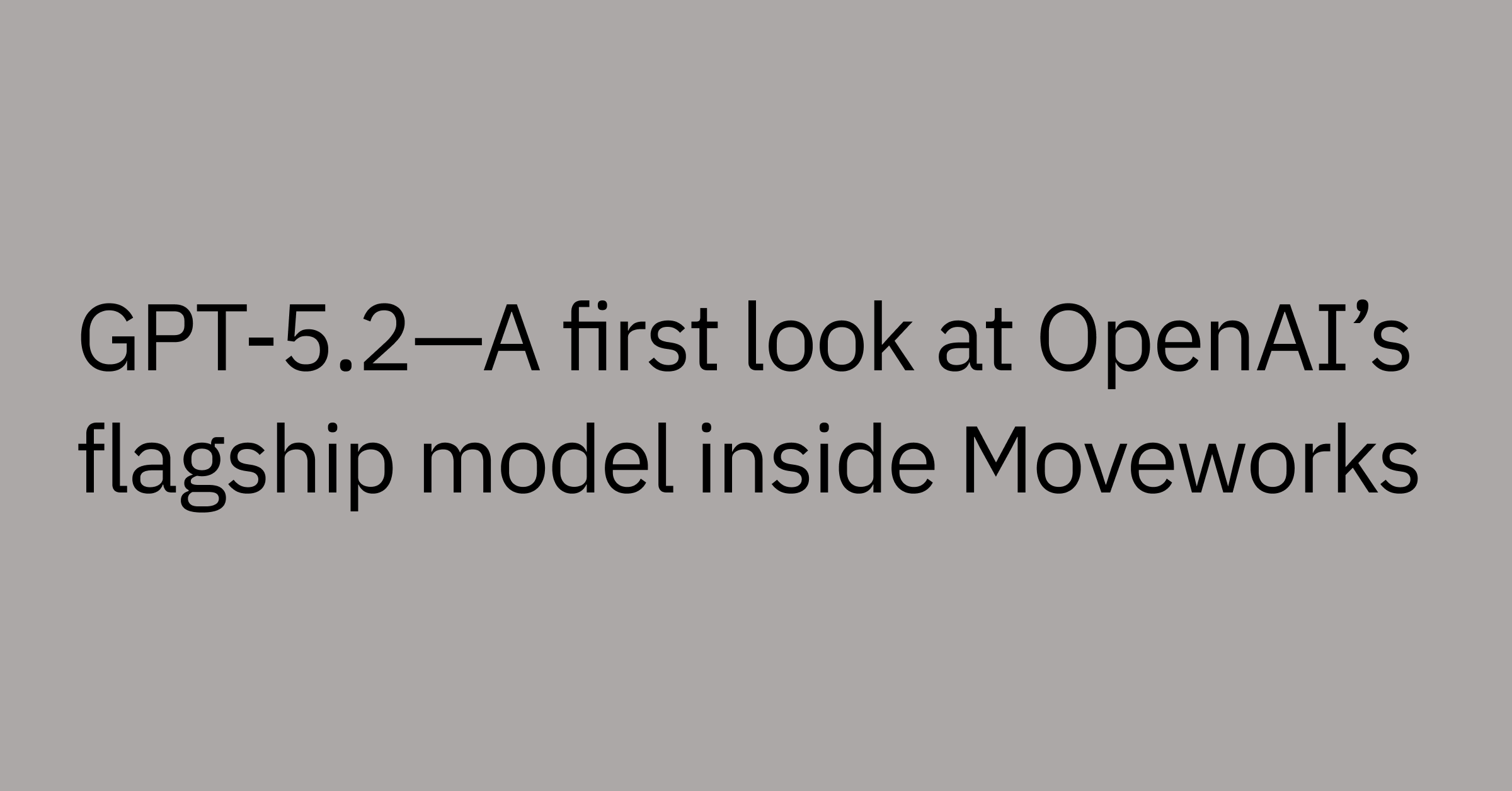Table of contents
Ready or not, conversational AI is here, and it's taking the business world by storm.
Thanks to rapid advancements in language processing and the emergence of ChatGPT, most enterprises are no longer asking whether they should incorporate conversational AI into their tech stacks but how quickly they can do it.
It's not just the tech giants leading the way — companies across all industries are harnessing the power of conversational AI to boost efficiency, customer satisfaction, and even employee experience.
In this article, we'll explore five businesses leading the charge in implementing conversational AI and how it improves their work.
What you’ll learn:
- What is conversational AI?
- Why businesses of all types are using conversational AI
- Five examples of conversational AI in action
What is conversational AI?
Conversational AI enables machines to interpret and respond to human language, creating a more natural interaction between humans and machines.
This cutting-edge tech leverages natural language processing, machine learning, and artificial intelligence to mimic human-like conversations and can be used in various business applications, including customer service, HR functions, and internal communication.
Why businesses of all types are using conversational AI
In a world where efficiency and speed are paramount, businesses are constantly seeking new ways to streamline their processes and better serve their customers and employees. That's where conversational AI comes in.
By using chatbots and other conversational tools, companies can provide instant help to their customers, reducing wait times and freeing up support teams to focus on more complex tasks.
But the benefits of conversational AI go beyond just customer service. For example, in HR, conversational AI can automate tasks like scheduling interviews, answering employee queries, and managing leave requests, taking the burden off of HR professionals and allowing them to focus on more strategic work.
Another major advantage of conversational AI is the potential to improve the employee experience. By automating tedious and repetitive tasks, AI can help employees can focus on more high-value activities that require human expertise, ultimately increasing job satisfaction and productivity.
And let's not forget about the potential for conversational AI to promote diversity and reduce bias in decision-making. By standardizing processes and decision-making based on objective data — rather than subjective human judgment — conversational AI can help businesses make more fair and unbiased decisions.
All in all, it's no surprise that businesses of all types are eagerly adopting conversational AI. With the potential to increase efficiency, improve customer service, and enhance employee experience, conversational AI is quickly becoming a must-have tool for modern businesses.
5 conversational AI examples
1. Unity levels up its tech support with conversational AI on Slack
Unity, a leading platform for creating and operating interactive, real-time 3D content, successfully implemented conversational AI to enhance its employee experience.
The company's CIO, Brian Hoyt, emphasizes the importance of employee experience and how it plays a crucial role in enhancing overall organizational performance. With employees submitting their IT issues on an #ask-IT Slack channel, Unity’s support team had to keep track of dozens of ad-hoc issues.
Thanks to Conversational AI, the service desk was able to address a significant portion of these issues automatically. All employees had to do was ask a conversational AI chatbot. Instead of waiting days for support, employees now get help in less than a minute resulting in a happy team. More than 90 percent of Unity’s employees are satisfied with their IT experience!
2. Luminis Health uses conversational AI to support frontline healthcare workers
Conversational AI is transforming various industries, including healthcare. It offers numerous benefits, from improved patient care to enhanced operational efficiency. One such example is Luminis Health, where IT Director Andre Green implemented conversational AI to up-level his team and provide better services to patients.
One of the most significant advantages of conversational AI in healthcare is its ability to automate routine tasks. For instance, AI-powered bots can handle password resets, appointment scheduling, and other repetitive tasks, freeing healthcare workers' time to focus on more critical responsibilities.
With conversational AI resolving issues remotely and instantly, often without agent intervention, Green saw a 25% reduction in IT call volume two weeks after launching a conversational AI chatbot.
It is worth noting that implementing conversational AI is not about replacing human resources; instead, it is an opportunity to up-level team members by allowing them to focus on high-value tasks. According to Green, investing in AI is an investment in the team's upskilling, enabling them to work more efficiently and productively.
Luminis Health's success in implementing conversational AI highlights the technology's potential to revolutionize the healthcare industry.
3. Verisk supports its global workforce in seconds with conversational AI
Globalization has revolutionized how companies operate, with businesses having employees distributed worldwide. However, this distribution presents a challenge for support, as providing timely and efficient support to every employee is often not feasible.
For example, following some acquisitions, Verisk needed to onboard thousands of new employees across the UK, Spain, and Asia-Pacific, and at the same time, each new company possessed its own systems and processes.
That’s why Verisk's IT leaders recognized the need for a robust support system to deliver personalized and consistent support across the organization. They knew rules-based chatbots would struggle to hold a natural conversation in their complex environment, so they turned to conversational AI as the solution. As a result, more than 96% of Verisk’s employees — around the world — now rely on a conversational AI chatbot for support.
Conversational AI chatbots are a game-changer for global businesses, providing always-on, efficient, and personalized support, regardless of employees' locations. Integrating AI technology in IT support is an investment in the company's future, ensuring they can deliver top-notch support services to employees irrespective of location.
4. Medallia turns to conversational AI when employees need help
At Medallia, conversational AI is not just a tool for basic question-answering or category prediction; it's an integral part of the company's approach to managing permissions and entitlements, provisioning applications, and enabling employees.
While many enterprises are still exploring the possibilities of AI, Medallia has taken bold steps toward transforming its business with this technology. Immediately after the conversational AI chatbot’s implementation was complete, Medallia employees could engage with Jarvis conversationally on Slack to instantly self-service their tech issues, from unlocking accounts to resetting MFA tokens to accessing new software.
Problems that once took several days to fix manually were suddenly resolved in seconds — fundamentally transforming the experience for employees and the IT team.
Conversational AI has allowed Medallia to leverage AI and automation to level previously thought unattainable, and the results have been impressive.
5. Albemarle doubles employee productivity with conversational AI
For global enterprises like the Albemarle Corporation, providing consistent, high-quality IT support to all employees, regardless of location or language, can be daunting. But with the help of conversational AI, Albemarle has achieved this goal.
The company's CIO, Patrick Thompson, explains that the conversational AI chatbot provides 24/7 help to employees in their native language, allowing everyone to get the support they need quickly and easily without the need for localized service desks around the world.
In addition to providing IT support to employees, conversational AI can pull insights from backend IT systems, helping Albemarle turn thousands of requests into a simple, actionable to-do list.
While current ITSM insights tools focus primarily on tickets and SLAs, conversational AI can help companies identify trends and issues before they become major problems and proactively address them. This approach offers Albemarle’s support leaders granular insights, allowing them to immediately see and address inefficiencies across the company.
How conversational AI can help your business
Conversational AI is transforming the business landscape in unprecedented ways, and its adoption is only accelerating. As we've seen, companies across all industries are embracing this technology to streamline processes, enhance customer satisfaction, and improve the employee experience.
The examples we've discussed in this article illustrate the versatility and power of conversational AI, from reducing IT support wait times to improving patient care in healthcare settings. As conversational AI technology evolves, we can expect to see even more innovative use cases emerge. Businesses that fail to embrace this transformation risk falling behind the competition.
Whether you're just starting to explore the possibilities of conversational AI or you're ready to take your existing implementation to the next level, we invite you to start your own conversational AI journey and discover how this game-changing technology can transform your business.
Contact Moveworks to learn how AI can supercharge your workforce's productivity.



